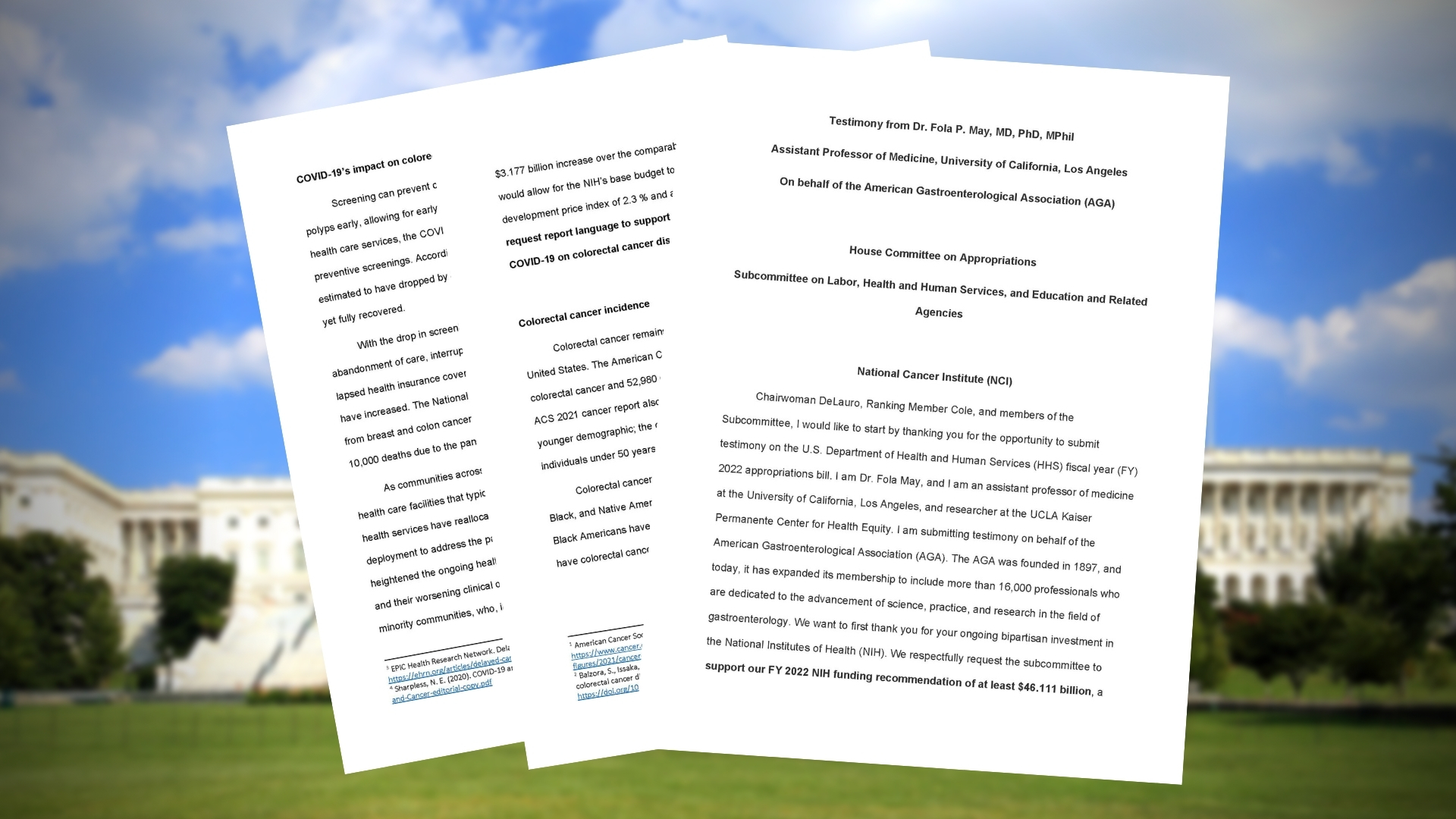The U.S. House of Representatives recently passed the Labor-HHS bill for fiscal year (FY) 2022 by a vote of 219-208. The bill is a huge win for the GI community as it includes several of AGA’s top policy priorities including AGA language that directs NIH to study the impact of the pandemic on colorectal cancer (CRC) screenings, especially among racial and ethnic minority communities. The bill includes major funding increases for NIH and also helps advance many of AGA’s Equity Project goals.
Key provisions
Sustainable funding for digestive disease and GI cancer research
- National Institutes of Health (NIH): $49.4 billion (+$6.5 billion).
- AGA’s FY22 request: $46.1 billion.
- National Cancer Institute: $6.992 billion (+$432 million).
- AGA’s FY22 request: $7.609 billion.
- National Institute of Diabetes and Digestive and Kidney Diseases: $2.387 billion (+105.65 million).
- AGA’s FY22 request: $2.289 billion.
Addressing and reducing racial and ethnic health disparities within GI and beyond
- Inclusion of AGA’s drafted report language on colorectal cancer disparities.
- $330 million increase for NIH health disparities research.
- $150 million increase to CDC for investments in social determinants of health to improve health equity.
- CDC’s Colorectal Cancer Control Program – $45.29 million.
- $2 million increase to expand efforts to address disparities in colorectal cancer screening rates and to improve access to underserved populations.
- $3 million for the Agency for Healthcare Research and Quality (AHRQ) to support health equity research grants and an additional $1 million to support research supplements related to health equity.
- $25 million for Health Resources and Services Administration (HRSA) to fund Health Centers to increase access and address barriers to cancer screening.
- Numerous provisions encouraging various agencies to continue studies into identifying, measuring, and mitigating health disparities.
Patient access to specialty care through telehealth expansion
- Numerous provisions encouraging studies related to accessibility, standards, and measurement of telehealth services during the COVID-19 pandemic and beyond.
- $39 million (+$5 million) under HRSA to promote the effective use of technologies to improve access to health services.
Additional provisions of importance to GI and our patients
- Centers for Disease Control and Prevention (CDC): $10.6 billion (+$2.7 billion).
- Funding included for creation of the Advanced Research Projects Agency for Health (ARPA-H): $3 billion.
- Report language encouraging:
- NIH to coordinate across Institutes and Centers focused on nutrition research to support research to understand the relationship between food and immune-mediated conditions, including IBD.
- NIDDK to continue pursuing bedside-to-bench research in IBD with a focus on biological and clinical drivers of patient remission and relapse in Crohn’s disease and ulcerative colitis.
- CDC Chronic Disease Prevention and Health Promotion – Inflammatory Bowel Diseases: $1.5 million (+$500,000).
Senate appropriators have yet to release and mark-up their bills as we head into the August recess, signaling that we will likely see a continuing resolution to fund the government at the end of September. AGA will continue to meet with Senate offices during the appropriations process to convey our policy priorities and ensure the GI perspective is heard.












